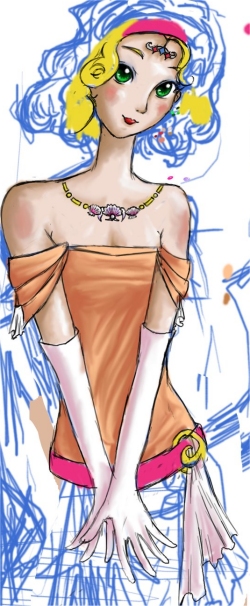One of the inadvertent, unfortunate effects of studying for a philosophy final is the constant deviations in thought, as the philosophies are variously absorbed and processed, and then churned back out in bizarre permutations. If studying science, like the kinetics I was studying earlier today, is like inputting strings into my mind, then studying philosophy is like inputting lines of code which I accidentally begin to execute.
However, my philosophy is not the same as the ones that I read. It is a strange disconnect that I can’t quite place my finger on. I have just read bits of Sartre’s “L’Etre et le Neant” as well as “L’Existentialisme est un Humanisme,” the former of which is incredible self-contradictory and the latter of which is, in all its clarity and lay terminology, by far the inferior text (I’m not even quite sure why we read it, as Sartre himself thought it was a mistake to publish). In any case, there’s really something big here, about my being as such, and how I am indeed, in the act of acknowledging what I am, being what I am not, and striving to become what I am, denying that I can be what I am.
But leave that aside for now; I am not Sartre, and I’m not quite the type of existentialist he was. What I wish to consider here is something a bit difference.
We are alive; life exists. Life is a bizarre form of matter in that it seems to want to do something rather than having things done to it. Humans are a further extension of that absurdity, for they have a will, and the first use that they have for this will is to simply think this: “I wish I did not have a will.”
As much as we cherish and champion free decisions and those who take the initiative, people would ultimately much rather that things just happen. If we could press a button to write a paper rather than actually write it, we would probably press it. If we could extend the deadlines for papers indefinitely, we would extend them and then never write the papers, comforted that they are not yet due.
And yet, such a life would be full of shame. Why does it make us feel guilty and shameful? It is not because we wish for change! No, it is because we hate change.
But, that is the very reason why we choose to effect change. We want to change the world so that it will stop changing. In short, we wish to renounce our non-livingness – that is, the state of being eternal dirt – and become, briefly, these transient living beings, all in order that we may somehow achieve a state of untouchability; a nirvana in which we, renouncing again life (for life is contingent on future death), instead of being the non-life of dirt, are the non-life of Heaven.
Immortality is in itself a useless concept. It is quite akin to the ordinary state of death. No, we do not desire immortality. We hate decisions, but we also hate being the object of decisions. We want to be apart completely from the idea of decision, from the idea of being swept about, and so we strive to make the “final decision,” the decision that would end all decisions.
But what could this decision be?
Many people proceed through life without ever making this decision. In fact, no person so far has. People instead fall into complacency and then die in a fit of resignation. Death is not the decision; death is the consequence of the failure to make the decision.
As humans, we have finally come to the point where we can conceive of the decision, and the decision is thus:
To first create a new world so completely that it cannot be doubted to exist.
And then, with this will, make the one decision that only it may make, and that is the decision to believe that, in this new world, one has no will. And then all would be the perfect state of nothingness, where one may not be touched or hated.
